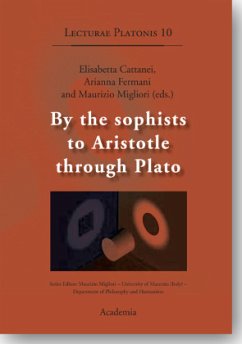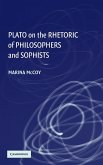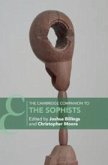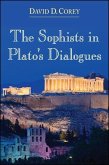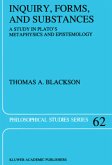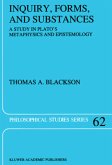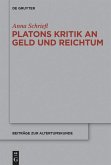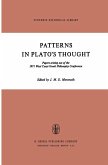There is a substantial difference between our way of 'philosophizing', born out of Descartes' clear and well-defined thinking and bent on building alternative (aut-aut) models, and the classical (especially Platonic-Aristotelian) way where a constant use of technical and methodical pluralism serves to juxtapose different (et-et) schemes necessary to grasp an intrinsically one-manifold reality. The ancient Philosophers bring a great wealth of schemes into play, albeit in different forms. This is to say that one could also come across statements that are clearly mismatched and sometimes even at odds with one another, without either giving rise to a real contradiction or (even less so) a quasi relativistic viewpoint. Quite the contrary, an approach of this kind focuses on the necessary knowledge of a reality which, however, is multiform.
By assuming this interpretative paradigm and applying it to some of the most pivotal reflections of the Sophists, Plato and Aristotle, the Authors of the contributions herein provide a number of particularly eloquent examples of that typically 'Greek' movement, which is to proceed steadily by association of possibilities, rejecting the either/or solicitations and hinging their reflections upon the more open and dynamic 'and-and' combination.
The authors believe that many of the puzzles of Ancient philosophy that have involved and divided scholars can acquire a new and convincing explanation with this paradigm.
By assuming this interpretative paradigm and applying it to some of the most pivotal reflections of the Sophists, Plato and Aristotle, the Authors of the contributions herein provide a number of particularly eloquent examples of that typically 'Greek' movement, which is to proceed steadily by association of possibilities, rejecting the either/or solicitations and hinging their reflections upon the more open and dynamic 'and-and' combination.
The authors believe that many of the puzzles of Ancient philosophy that have involved and divided scholars can acquire a new and convincing explanation with this paradigm.

